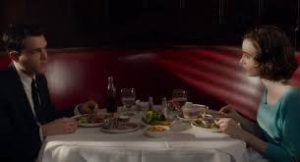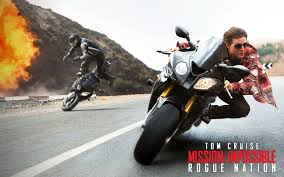RULES ARE MEANT TO BE BROKEN: Movie Reviews of Rules Don’t Apply and Allied by Howard Casner
Posted: December 1, 2016 | Author: Donald | Filed under: Uncategorized | Tags: Alden Ehrenreich, Alec Baldwin, Amy Madigan, Annette Bening, Brad Pitt, Candice Bergen, Dabney Coleman, Ed Harris, Hart Bochner, Jared Harris, Lily Collins, Marion Cottilard, Martin Sheen, Matthew Broderick, Matthew Goode, Oliver Platt, Paul Schneider, Paul Sorvino, Robert Zemeckis, Rules Don’t Apply, Simon McBurney, Steven Knight, Warren Beatty | 2,304 Comments »For questions: hcasner@aol.com
First, a word from our sponsors: I am now offering a new service: so much emphasis has been given lately to the importance of the opening of your screenplay, I now offer coverage for the first twenty pages at the cost of $20.00. For those who don’t want to have full coverage on their screenplay at this time, but want to know how well their script is working with the opening pages, this is perfect for you. I’ll help you not lose the reader on page one.
Ever wonder what a reader for a contest or agency thinks when he reads your screenplay? Check out my new e-book published on Amazon: Rantings and Ravings of a Screenplay Reader, including my series of essays, What I Learned Reading for Contests This Year, and my film reviews of 2013. Only $2.99. http://ow.ly/xN31r
and check out my Script Consultation Services: http://ow.ly/HPxKE
Warning: SPOILERS
 Rules Don’t Apply, the latest, and from what I understand, the last film from Warren Beatty who wrote, produced and plays famous recluse Howard Hughes here, has some charming moments in the first half.
Rules Don’t Apply, the latest, and from what I understand, the last film from Warren Beatty who wrote, produced and plays famous recluse Howard Hughes here, has some charming moments in the first half.
The story revolves round Frank Forbes (Alden Ehrenreich, who has the looks, charisma, but a lot more talent than B-movie actor Audie Murphy) who is one of Hughes’s many drivers who escort one of the billionaire’s many starlets around Los Angeles. The starlet assigned to Frank is Marla Mabry (Lily Collins).
Both are quite religious (Hughes chose his drivers from church goers as a guard against them trying to bed his starlets). They say grace before meals, watch The Billy Graham Crusade on television, and attend church every Sunday. And not only do they do this unapologetically when others are around and in the streets where they might scare the horses, Beatty himself presents this spiritual side of the characters just as unapologetically. Read the rest of this entry »
HEAD CASES: Movie Reviews of Joy and Concussion by Howard Casner
Posted: January 10, 2016 | Author: Donald | Filed under: Uncategorized | Tags: Albert Brooks, Alec Baldwin, Annie Mumolo, Bradley Cooper, Concussion, David Morse, David O. Russell, Diane Ladd, Edgar Ramirez, Isabella Rossellini, Jeanne Marie Laskas, Jennifer Lawrence, Joy, Ken Howard, Melissa Rivers, Peter Landesman, Robert de Niro, Susan Lucci, Virginia Madsen, Will Smith | 183 Comments »First, a word from our sponsors: I am now offering a new service: so much emphasis has been given lately to the importance of the opening of your screenplay, I now offer coverage for the first twenty pages at the cost of $20.00. For those who don’t want to have full coverage on their screenplay at this time, but want to know how well their script is working with the opening pages, this is perfect for you. I’ll help you not lose the reader on page one.
Ever wonder what a reader for a contest or agency thinks when he reads your screenplay? Check out my new e-book published on Amazon: Rantings and Ravings of a Screenplay Reader, including my series of essays, What I Learned Reading for Contests This Year, and my film reviews of 2013. Only $2.99. http://ow.ly/xN31r
and check out my Script Consultation Services: http://ow.ly/HPxKE
Warning: SPOILERS
 The movie Joy, the new sorta, kinda, maybe bio-pic of Joy Magano, inventor of the Miracle Mop, starts out with text on the screen: “Inspired by the true stories of daring women. One in particular”.
The movie Joy, the new sorta, kinda, maybe bio-pic of Joy Magano, inventor of the Miracle Mop, starts out with text on the screen: “Inspired by the true stories of daring women. One in particular”.
I don’t know. Somehow on seeing those words up there in front of me, there was something so…condescending and patronizing about it all. It’s as if the filmmakers David O. Russell (who wrote the screenplay and directed) and Annie Mumolo (who worked on Bridesmaids and gets co-story credit here) were doing women a favor by making the movie at all and that somehow women should be thankful that someone actually created a film that instructs them how they should be leading their lives, since, being women, apparently, they don’t really know how to be daring and independent themselves.
I’m sure I’m overreacting and I’m sure few others felt the same way, but there was just something about it that left a bad taste in my mouth.
Once this intro was over, we then spend the first third of the movie with Joy being victimized by her family (both extended and not) as it falls to her to take care of everyone else’s problems while she puts hers on hold.
This section didn’t play that well with me, I’m afraid. It’s hard to watch a character allow her or himself to be treated like a door mat, letting everyone walk all over then. I think the intent is for those in the audience to say, “Oh, the poor woman”, when in reality, we’re sort of thinking, “Hey, no one’s forcing you to be the cure all for other people’s over-exaggerated slings and arrows”. Read the rest of this entry »
Is There Balm in Gilead: Movie reviews of Aloha and Love & Mercy by Howard Casner
Posted: June 10, 2015 | Author: Donald | Filed under: Uncategorized | Tags: Alec Baldwin, Aloha, Beach Boys, Bill Murray, Bill Pohlad, Bradley Cooper, Brian Wilson, Cameron Crowe, Danny McBride, Elizabeth Banks, Emma Stone, Eugene Landy, John Cusack, John Krasinski, Love & Mercy, Melinda Ledbetter, Michael A. Lerner, Oren Moverman, Paul Dano, Paul Giamatti, Rachel McAdams | 813 Comments »First, a word from our sponsors. Ever wonder what a reader for a contest or agency thinks when he reads your screenplay? Check out my new e-book published on Amazon: Rantings and Ravings of a Screenplay Reader, including my series of essays, What I Learned Reading for Contests This Year, and my film reviews of 2013. Only $2.99. http://ow.ly/xN31r
and check out my Script Consultation Services: http://ow.ly/HPxKE
Warning: SPOILERS
 I’m not sure that I can really add to the general response to the movie Aloha (it’s 20% at rottentomatoes.com and I don’t think the box office is of the more optimistic size), but far be it from me not to join in and kick a man while he’s down.
I’m not sure that I can really add to the general response to the movie Aloha (it’s 20% at rottentomatoes.com and I don’t think the box office is of the more optimistic size), but far be it from me not to join in and kick a man while he’s down.
About three quarters of the way through the new rom com written and directed by Cameron Crowe (who also gave us the very good Almost Famous, Say Anything and Singles, but not much else since except for, well, Jerry “Show me the money” McGuire, but, no, I’ll stick with not much else since, thanks), I turned to my friend Jim and said, “I’m sorry, but I have to be honest: I have no idea what’s going on here”.
Jim laughed and sighed in relief because he had no more of a clue than I did.
The plot eventually does make sense; well, within the context of a not particularly well written movie it makes sense, but overall, as a piece of writing, it really makes little sense at all.
THE MOORE THE MERRIER: Movie reviews of Still Alice and Maps to the Stars and why Julianne Moore will win the Oscar this year by Howard Casner
Posted: December 14, 2014 | Author: Donald | Filed under: Uncategorized | Tags: Alec Baldwin, Bruce Wagner, David Cronenberg, Evan Bird, Hunter Parrish, John Cusack, Julienne Moore, Kristen Stewart, Maps to the Stars, Mia Wasikowski, Richard Glatzer, Robin Pattinson, Still Alice, Wash Westmoreland | 1,396 Comments »First, a word from our sponsors. Ever wonder what a reader for a contest or agency thinks when he reads your screenplay? Check out my new e-book published on Amazon: Rantings and Ravings of a Screenplay Reader, including my series of essays, What I Learned Reading for Contests This Year, and my film reviews of 2013. Only $2.99. http://ow.ly/xN31r
Warning: SPOILERS
 Julianne Moore is destined to win the Best Actress award at the 2014 Academy Awards. It’s written in the stars (pun intended) as much as any plot in a drama by Aeschylus or Shakespeare. Far and wide it has been announced that it is Ms. Moore’s year. And who am I to argue with the stars, metaphorical or not?
Julianne Moore is destined to win the Best Actress award at the 2014 Academy Awards. It’s written in the stars (pun intended) as much as any plot in a drama by Aeschylus or Shakespeare. Far and wide it has been announced that it is Ms. Moore’s year. And who am I to argue with the stars, metaphorical or not?
Now, the question that remains is, “why”? What confluence of events, both within and without anyone’s control, has lead Moore to this momentous precipice?
I’m glad you asked. I shall try and enumerate the reasons.
Movie Review of SEDUCED AND ABANDONED by Howard Casner
Posted: October 31, 2013 | Author: Donald | Filed under: Uncategorized | Tags: Alec Baldwin, Benh Zeitlin, Francis Ford Coppola, James Toback, Jessica Chastain, Martin McDonough, Neve Campbell, Ryan Gosling, Seduced and Abandoned, Shane Carruth, Sofia Coppola | 51 Comments »Seduced and Abandoned is not to be confused with the classic Italian film directed by Pietro Germi that came out in 1964, but I doubt you’ll be fooled after five minutes into the picture. No, this 2013 release is a movie that purports to make a statement on the state of filmmaking today. At the same time, it’s also one of those movies where the filmmakers don’t realize that the statement they are making may not actually be the statement they are making.
The basic premise of this semi-documentary revolves around director James Toback and actor Alec Baldwin taking an idea they have for a movie to the Cannes Film Festival and seeing if they can get someone to fork over $40 to $50 million to make it (and no, before you ask, they are not punking anyone; they are quite serious). When they don’t get the support they think they deserve, they then suggest that this is what is wrong with film financing today—no one is willing to take a chance and produce a work of art; they are only interested in the bottom line.
But let’s take a closer look at what is going on here. A director with a small cult following, but who really isn’t that impressive a filmmaker (for anyone who wants proof of this, watch Toback’s movie Fingers and then watch Jacque Audiard’s French remake of it, The Beat that My Heart Skipped, and one can immediately see what I mean), takes an idea (not even a completed script, but the barest of bones of a gleam in a father’s eye) that is to star Alec Baldwin and Neve Campbell (Neve Campbell? Really?) and pitches said idea to seasoned producers. The idea? (And please try not to chortle and disrupt the audience members around you as I did): Last Tango in Baghdad (I told you, no chortling), the story of two people, a war haunted U.S. agent and a liberal journalist, who meet for a series of sexual encounters in a hotel room in the war torn city.
No, I am not making this up—that’s the idea. Actually, I’m being a bit harder on it that it deserves. There’s nothing that wrong with the premise. It’s perfectly serviceable and with the right screenwriter, there’s no reason it couldn’t be a good movie. But for me, things start going off the road a bit the second they started pitching it as a Last Tango rip off. In fact, the moments with the most humor in this faux-doc are the scenes Toback shows from that once, but no longer, scandalous movie—like Brando asking Maria Schneider to stick her fingers up his ass (at least they didn’t do the “pass the butter” scene); it’s unfortunate for Toback that Last Tango… hasn’t, unlike cheese, aged that well.
The other issue is that Toback and Baldwin pitch this idea as if it were the most original and daring idea in the world, that they are going to break new sexual ground and create something really scandalous; a statement that could only be made by people who have never seen a movie like 9 Songs where you actually see, in pornographic detail, a man and woman have sex, including cum shots. Now, are Baldwin and Campbell going to break new ground here by pulling a James Deen (no, not the actor, the porn star—notice the spelling of the name) and Joanna Angel? Why do I suspect not?
So what do we have? We have a second rate filmmaker, with barely an idea for a movie (and hasn’t been written yet), and an idea that’s not that original and with a lousy pitch, to star two non-bankable actors; and yet, Toback and Baldwin are shocked, shocked (in their very best Captain Louis Renault manner) that they can’t get $40 to $50 million in financing. Hence, their conclusion that something is rotten in the state of moviemaking. Meanwhile, I’m in the audience going, Uh, guys, you do realize that the only thing you’ve proven is that the guys out there financing films can smell a lemon a mile away? In fact, rather than demonstrate that something’s gone wrong in France’s version of tinsel town, Seduced and Abandoned ironically suggests that the future of movies is in sound hands.
Which is too bad. Because I actually think that Tobac and Baldwin are right. In many ways, I agree with the basic premise presented here. I do think that producers are too interested in the bottom line with little to no regard for the art of film (a huge change since the growth of independent film in the 1990’s). It is just unfortunate that Toback and Baldwin have chosen a less than stellar example to prove it.
And they seem so behind the times. They don’t explore how many contemporary filmmakers are finding money to make their films. In fact, there are no contemporary filmmakers in the movie. They interview Francis Ford Coppola, but not his daughter Sofia, who is one of the most exciting directors in film today (and seems to have less problems finding backing for her film than her father, or Toback). They talk to Martin Scorcese, but not such up and comers as Shane Carruth, Benh Zeitlin or Martin McDonough, all of whom are making some incredible films. The only contemporary artists they talk to are actors like Ryan Gosling and Jessica Chastain, all of whom have insightful things to say about what it’s like to be an actor today, but nothing about how to get a movie made.
There’s just something so false about the whole thing. Not only does the movie they are promoting never seem quite real (it’s all so vague, one wonders how they ever got the time of day from any financier to pitch it), it starts out with Toback telling Campbell that she is in the movie and nothing will stop that from happening. You know this scene is there for only one reason: so that at the first opportunity, Toback can make a satirical point by telling just about the first person he negotiates with that he will gladly jettison Neve for Jessica if they can agree upon a price. But again, it feels so fake, it’s hard to take seriously.
There is one other aspect of the film that gives a lie to Toback’s premise. When they decide to scale back the film and make it about these two people meeting in New York after both have left the war zone, yet are still scarred by their experiences, and meeting for sex at that point, they suddenly get offers left and right for a $4 to $5 million dollar film. Not only does the film now sound more interesting, Toback has found a way to finance his movie. It’s not his original vision, no; but then again, his original vision wasn’t worth $40 to $50 million in the first place.
Toback may be saying that these money men know how to make a profit, but nothing about art, but to be ruthlessly honest, I think he kind of unintentionally proved they knew both.
Movie Reviews of FRUITVALE STATION, THE WAY, WAY BACK and BLUE JASMINE by Howard Casner
Posted: August 8, 2013 | Author: Donald | Filed under: Uncategorized | Tags: Alec Baldwin, Allison Janney, Andrew Dice Clay, Blue Jasmine, Cate Blanchette, Fruitvale Station, Jim Rash, Liam James, Maya Rudolph, Michael B. Jordan, Nat Faxon, Peter Sarsgaard, Ryan Cooglar, Sally Hawkins, Sam Rockwell, Steve Carrell, The Way, Toni Collette, Way Back, Woody Allen | 2 Comments »The movie Fruitvale Station has a horrific finale, a fevered, shaking camera dramatization of a terrible, tragic incident. It’s also the main reason to see the film. It’s a disturbing, chaotic and frustrating set of scenes and makes you very angry. So if nothing else, the movie has certainly achieved something here. At the same time, as a whole, the movie never really connected with me. The rest of the film is a chronicle of the events, a day in the life of type thing, of the central character, Oscar Grant, a young man with a difficult background spending his last day on earth without knowing his time is running out.
How you feel about the film will probably depend upon how you feel about this character. Oscar (played sincerely and solidly by Michael B. Jordan) is a petty drug dealer who has been in and out of prison. He’s also a compulsive liar; a player; has anger management issues; and refuses to take any responsibility for how his life has turned out. He’s the sort of guy who tells his girlfriend and mother of his child that that last affair he recently had, you know the one, well, hey, now, babe, that meant nothing and it’s over and I’m a new guy now; then in the next scene, he’s flirting with a young woman at the store he once worked at. He’s also the kind of guy who threatens his ex-box with bodily harm if he won’t give him his job back, the job he lost from constantly showing up late (at another time, he threatens to urinate on a poor store owner’s entranceway if he won’t let some friends of his use the store bathroom—you see a pattern here).
After all that, he should be fascinating. He’s the sort of character that I go to movies to see. But Oscar isn’t. In fact, he’s sort of familiar and the kind of character we’ve seen many times in movies before. There’s nothing that particularly unique or vibrant about him. He’s even a bit bland, when all is said and done. Hard to believe when one reads the description above, but that was pretty much it for me.
I think because of this, once the emotional effect of the horrific incident at Fruitvale Station wore off, I thought: okay, it was a terrible event, but I’m still not sure why the writer/director Ryan Cooglar made the movie. The tragedy at the end is not presented in a way that is a commentary on Oscar’s life, though one gets the feeling that Cooglar wants it to be in some way. Instead, it’s unclear Cooglar offers any real insight to the situation or has anything to say about it other than, well, than “shit happens”. Which, actually, is a perfectly fine theme; it’s just unclear that this was Cooglar’s intention.
I do highly recommend a film with a similar situation, The Murder of Stephen Lawrence, written and directed by Paul Greenglass, also a true story about a black teenager who was shot and killed by police officers for unclear reasons; this time in England. It’s a tension filled story that grabs you from the beginning and refuses to let go. Fruitvale Station felt a bit too leisurely to me.
Over the past couple of years, two genres of film seem to have dominated the silver screen: the coming of age film (from Moonlight Kingdom to The Perks of Being a Wildflower to The Kings of Summer to The Bling Ring to The To Do List) and the film apocalypse (from It’s a Disaster to This is the End to The World’s End to World War Z to almost any movie based on a super hero). I’m not sure what this means. I can’t say that it’s a particularly optimistic view of the world to say that just when one takes the first steps toward being an adult you’re shit out of luck because the world’s about to bite you in the ass big time.
The latest foray into the coming of age category is The Way, Way Back, a story about a teen, Duncan (played satisfactorily by Liam James), having to spend a couple of weeks at a beach house with his mother Pam and her new boyfriend Trent, who treats Duncan like a cockroach to be stomped on. While The Kings of Summer is a more ambitious film, The Way, Way Back is actually more satisfying if for no other reason that while the kids in the former film are nothing but spoiled brats who don’t know when they are well off, the hero in the latter film is in a near nightmarish situation in which he is more sinned against that sinning.
But like many films in this popular genre, The Way, Way Back is fun and entertaining and even moving at times, while not really bringing anything new to the table and it all feels rather formulaic. What it does have is some very nice acting, especially from Sam Rockwell in the Bill Murray role, as Owen, the manager of a swimming park who takes pity on the depressed Duncan and becomes the true father figure that Trent (Steve Carrell, giving it his all, while at the same time, never seeming comfortable in the roll and always looking miscast) could never be. Giving more than able support is Toni Collette as the scared and desperate Pam; Allison Janney, hysterical as Betty, the alcoholic in the making next door neighbor; and Maya Rudolph as Owen’s long suffering co-worker.
Perhaps the most original and intriguing aspect of the screenplay (by Nat Faxon and Jim Rash, who also directed) is the character of Betty. In many ways, she treats her kids in the same inexcusably awful manner as Trent treats the kids under his roof. But while Trent leaves you with the feeling that he’s one degree off from becoming Ted Bundy, it’s obvious that Betty and her kids all love each other very much. It’s a clever juxtaposition.
But in the end, does it really matter? The way things are going in the movies these days, all the characters are going to die in a couple of years anyway.
Blue Jasmine is a character study of a faded Northern bell. Any resemblance to A Streetcar Named Desire is purely unintentional, I’m sure (and I have the deed to the Brooklyn Bridge in my pocket). But though written and directed by the great Woody Allen, it feels like a screenplay written by someone who had no emotional attachment to anyone in the film or anything that is going on in it as well. And when it’s all over, you go: fair enough, but exactly why was it made?
It stars Cate Blanchette as Jasmine, a woman married to a Bernie Madoff type (Alec Baldwin) who loses all her upper class trappings when her husband is arrested and the IRS and the court take everything she owns. She moves to San Francisco to live with her sister Ginger, someone she feels too superior to to really want to have anything to do with (Sally Hawkins). The story is told in a rather clunky manner with tons of expository dialog and some distracting side trips (mainly dealing with the Ginger’s love life) that just get in the way of Jasmine’s central through line.
The plot is often not that believable; Jasmine takes a computer course for some reason that never made sense—she claims to be computer illiterate, but no one in her social background is this obtuse. She also has a romance with a politician on the rise (Peter Sarsgaard), someone who works for the State Department yet still has enough money to buy a second home only Donald Trump could afford (okay, I’m exaggerating, but you get my drift). This subplot is so questionable that one is expecting Sarsgaard’s character to turn out to be a con man of some sort with the intent of Jasmine getting a taste of her own medicine; but no, he is exactly what he seems. And that’s without mentioning a surprise ending that only poses more questions than it answers.
On the plus side, this is a movie that is cast within an inch of its life. Everyone is excellent and some, like Hawkins and Blanchett, are brilliant. Perhaps most surprising Is Andrew Dice Clay who is spot on as Hawkins’ working class ex-husband (who knew that Clay could actually have had an acting career if he hadn’t been such a jerk). But in many ways, that is almost all Blue Jasmine has. Whether that is enough, is up to you.












